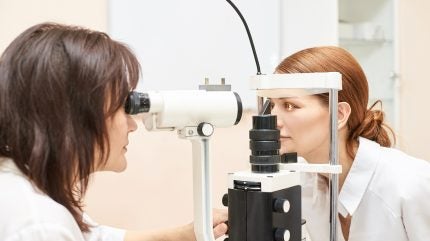

Biotechnology company Ocugen has completed dosing in the second cohort of its Phase I/II ArMaDa clinical trial of modifier gene therapy candidate OCU410 (AAV-hRORA).
OCU410 is a modifier gene therapy candidate targeting geographic atrophy (GA), an advanced stage of dry age-related macular degeneration (dAMD).

Discover B2B Marketing That Performs
Combine business intelligence and editorial excellence to reach engaged professionals across 36 leading media platforms.
It makes use of the AAV delivery platform for the retinal delivery of the RORA (ROR Related Orphan Receptor A) gene.
Three subjects received a 200ml single subretinal administration of the medium dose (5 × 1,010vg/ml) of OCU410.
The ArMaDa clinical trial is being conducted across up to 13 retinal surgery centres in the US.
Next month, a Data and Safety Monitoring Board meeting will be held to review the four-week safety data of the medium-dose cohort before the commencement of the high dose, which is the final dose in the Phase 1 dose-escalation study.

US Tariffs are shifting - will you react or anticipate?
Don’t let policy changes catch you off guard. Stay proactive with real-time data and expert analysis.
By GlobalDataThe Phase I/II ArMaDa trial is designed to assess the safety of unilateral subretinal administration of OCU410 in subjects with GA.
Phase I of the trial is a multicenter, open-label, dose-ranging study with three dose levels. Phase II will be a randomized, outcome accessor-blinded, dose-expansion study with subjects randomized in a 1:1:1 ratio to either one of two OCU410 treatment groups or to an untreated control group.
Ocugen chief medical officer Dr Huma Qamar said: “OCU410 regulates multiple pathways involved with the disease, including lipid metabolism, inflammation, oxidative stress, and membrane attack complex (complement) with a single sub-retinal injection.”
Gundersen Health System’s Retina Service director and research and digital medicine vice-chair while Syed M Shah is the lead investigator for the OCU410 Phase 1/2 trial.
Shah said: “Currently, we have two FDA-approved, anti-complement therapies for GA targeting a single pathway of the disease, which has multifactorial and complex aetiology.
“The limited benefit comes with the burden of continued multiple intravitreal injections spanning over several years. This novel modifier gene therapy has the potential to transform the therapeutic landscape in GA treatment.”
Last month, Ocugen completed subject dosing in the first cohort of its Phase I/II ArMaDa clinical trial of OCU410 (AAV-hRORA).





